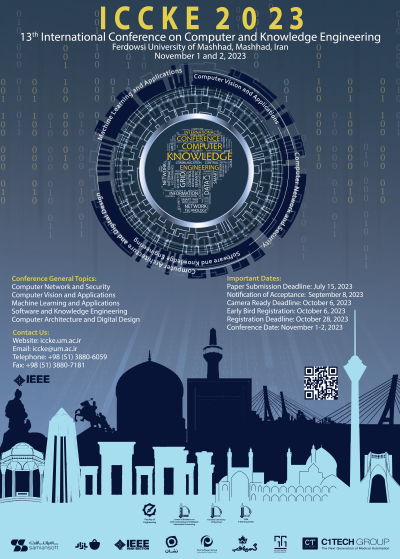0% Complete

Authors :
Keywords :
Abstract :
List of archived papers
Reza Shami Tanha - Mohsen Hooshmand - Mohsen Afsharchi
Alireza Safarpour - Iman Gholampour - Amirhossain Aghazadeh Fard - Seyed Mohammad Karbasi
Ali Abedzadeh - Reza Ramezani - Afsaneh Fatemi
Davod Karimpour - Mohammad Ali Zare Chahooki - Ali Hashemi
Shanker J Gambhire - Malligunta Kiran Kumar - Hossein Shahinzadeh - Mohammad-hossein Fayaz-dastgerdi - B. Srikanth Goud - Ch.Naga sai Kalyan
Mahshid Zolfaghari - Hamid Fadishei - Mohsen Tajgardan - Reza Khoshkangini
Reza Arghand - Ali Chaibakhsh - Moein Radman
Niloofar Alizadeh - Behnam Asghari Beirami - Mehdi Mokhtarzade




